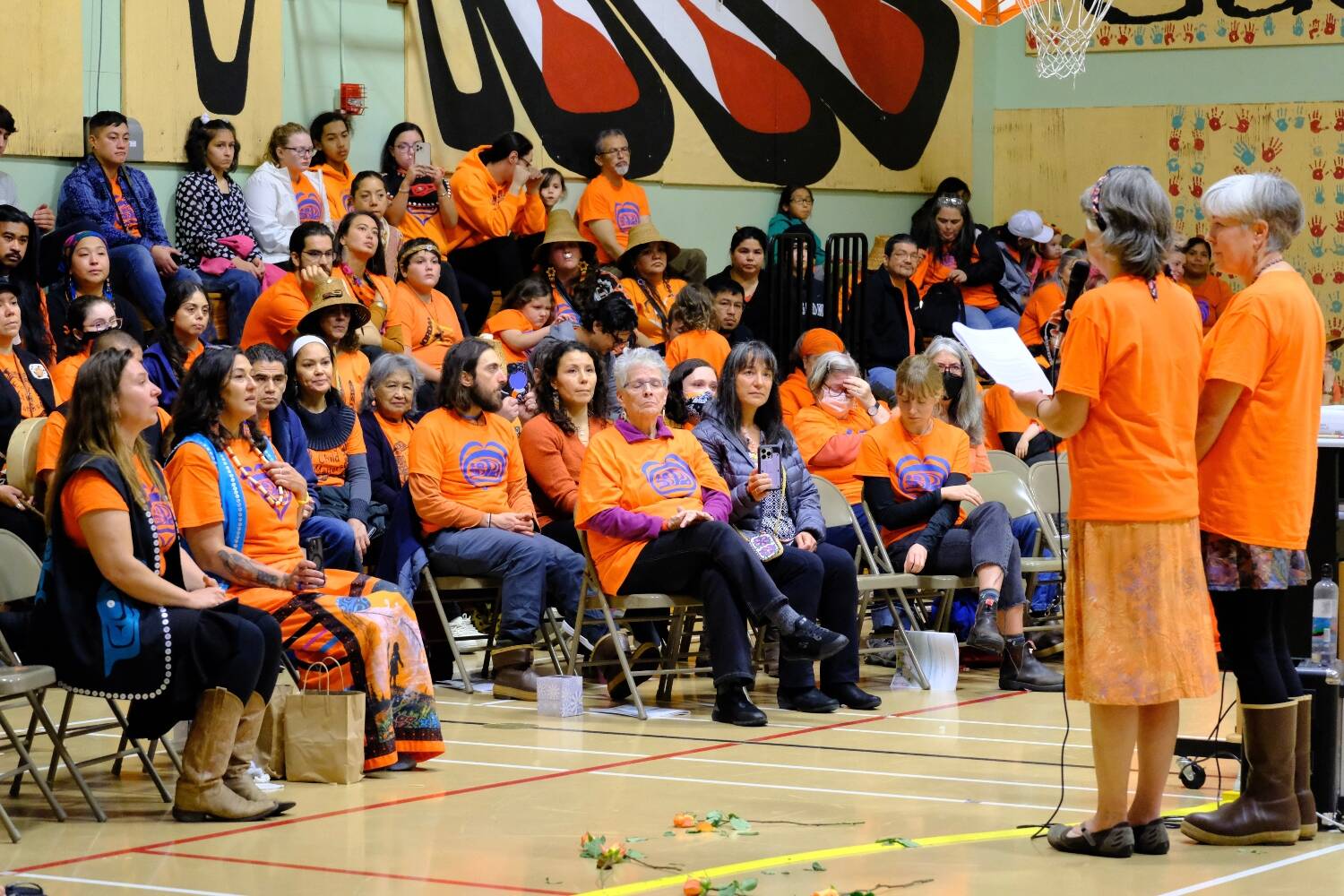Alaska lawmakers overwhelmingly voted to support a federal proposal that would investigate and document the forced assimilation of American Indian, Alaska Native and Native Hawaiian children in government-funded boarding schools.
House Joint Resolution 17 acknowledges the trauma Indian boarding schools inflicted on Indigenous communities in Alaska and across the country, said the bill’s sponsor, Rep. CJ McCormick, D-Bethel. There were more than 100 government-funded, church-run Alaska Native boarding schools in Alaska from the late 1800s through the 1960s, according to research presented by his office and the Alaska Native Heritage Center. They separated young children from their families and forcibly immersed them in Euro-American traditions and the English language.
McCormick said the legacy of abuse and intergenerational trauma continues to haunt Alaskans and requires acknowledgement.
“I think a lot of my colleagues were honestly kind of taken aback by the extent of these atrocities,” he said and described how research and testimony changed their minds.
The Senate unanimously approved the resolution and it had overwhelming support in the House. Rep. David Eastman, R-Wasilla, was the lone vote against it.
The resolution puts Alaska lawmakers in support of a U.S. Senate bill that would direct a federal commission to gather evidence of assimilation practices and human rights violations in the nation’s boarding schools for Indigenous children. Alaska Republican U.S. Sen. Lisa Murkowski has led the bipartisan effort with U.S. Sens. Brian Schatz, D-Hawaii, in Washington, D.C. It has 32 cosponsors.
‘Threaded through our community’
Callan Chythlook-Sifsof, staff who worked on the bill for McCormick’s office, shared that her grandfather and most of the elders in her family attended the Aleknagik Mission School in Southwest Alaska, where she is from. She noted that the buildings and memories are present, but largely unacknowledged in official records.
“This is a phenomenon I’ve known about my whole life. And I can just look across the lake and look at the Mission School,” Chythlook-Sifsof said.
While first-person accounts of boarding school abuses are becoming more common, official documentation is scarce. The resolution supports a change that can help Alaskans heal, explained Sen. Forrest Dunbar, D-Anchorage, who carried the bill in the Senate.
“The lack of comprehensive documentation of this period limits our ability to address intergenerational trauma caused by the policies that supported the federal Indian boarding school system,” he said.
He said the resolution “is a step towards addressing a trauma that is threaded through our community and our Alaskan culture.”
Notable Alaskans who experienced boarding school abuses spoke out about their experiences in committee meetings with lawmakers this year. Rosita Worl, widely known as the president of Sealaska Heritage Institute, the nonprofit arm of Sealaska Corp., and as a community leader in Southeast Alaska, shared the story of how she was taken from her home in Petersburg and taken to an orphanage and Alaska Native boarding school in Haines, without the knowledge of her family members. She said she was ridiculed for speaking Tlingít instead of English and tearfully confirmed that sexual abuse took place there.
“Another memory that haunts me is seeing girls who are almost comatose. They would walk without ever talking or smiling. They would walk like zombies. I often wondered what happened to them, for one day I would see them and then the next day I wouldn’t,” she said.
Worl recalled being rented out by the Haines House for various jobs as an underage, unpaid laborer. She said on good days her grandparents would “rent” her and take her berry picking instead of forcing her to work.
Walkie Charles, now the director of the Alaska Native Language Center at the University of Alaska Fairbanks, recounted being stripped of his name and reidentified by a number at Wrangell Institute where he was taken for boarding school. “The kids in the generation before me were so beat up that upon their return home to their communities, they either couldn’t speak their heart language anymore, or refused to, because they were ashamed enough to choose the language of our oppressors,” he said.
Charles now teaches Yup’ik, the language the boarding school tried to erase.
New research
Even as the resolution moved through the legislative process, researchers found documentation that reinforces the memories of boarding school survivors.
Alaska Native Heritage Center Indigenous Researcher Benjamin Jacuk offered lawmakers a history of Alaska Native boarding schools in the state, and evidence of abuses that took place in them. He said Alaska was “ground zero” for national boarding school policies.
“There is not one Alaskan Native alive today who has not been directly or indirectly affected by this history,” he said. “It still walks with us.”
Last Monday he said he found evidence of the unpaid labor Worl recounted in previous testimony.
“We actually found contracts, which they would have parents — who at the time did not know English — sign, that are labeled as ‘indentured servanthood children,’ from infants to 14 years old,” he said. “Making the conversation not only about assimilation, but also for all intents and purposes, slavery.”
Jacuk said that revealing the darker truths of abuse within the state’s boarding schools is essential to moving forward.
“In order to understand what healing even looks like, we first need to know the truth,” he said. “And when we understand the truth, and we’re able to actually tell it, it brings healing to not only the people that are here today, or even the next generation, but also that to bring healing to the stories of those who came before us who are never able to tell their story.”
• Claire Stremple is a reporter based in Juneau who got her start in public radio at KHNS in Haines, and then on the health and environment beat at KTOO in Juneau. This article originally appeared online at alaskabeacon.com. Alaska Beacon, an affiliate of States Newsroom, is an independent, nonpartisan news organization focused on connecting Alaskans to their state government. Reporter James Brooks contributed reporting to this article.

